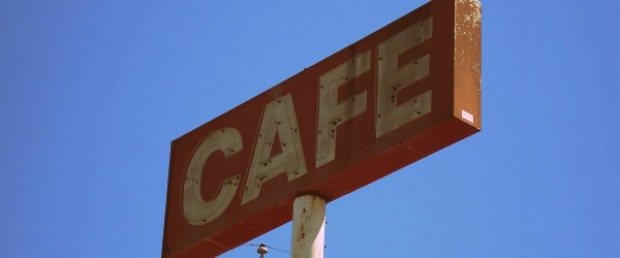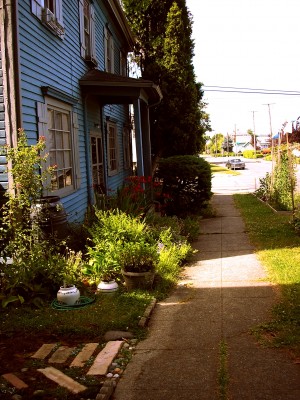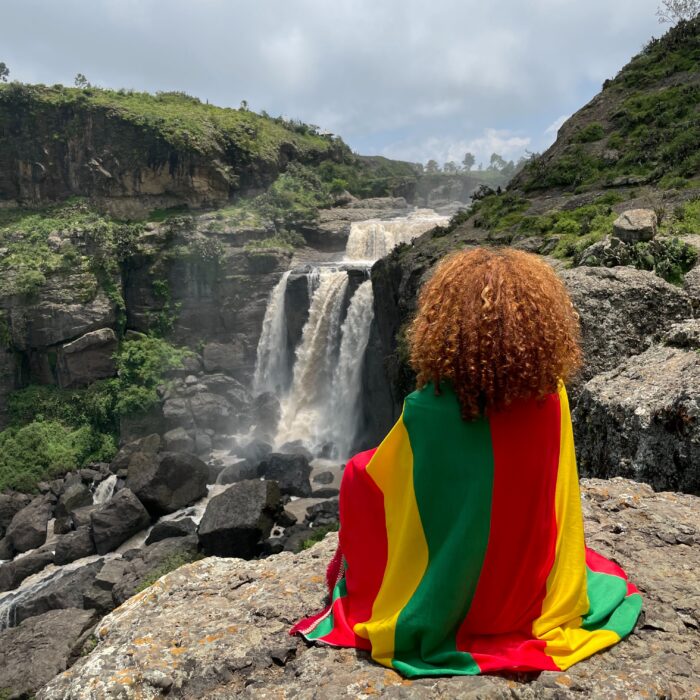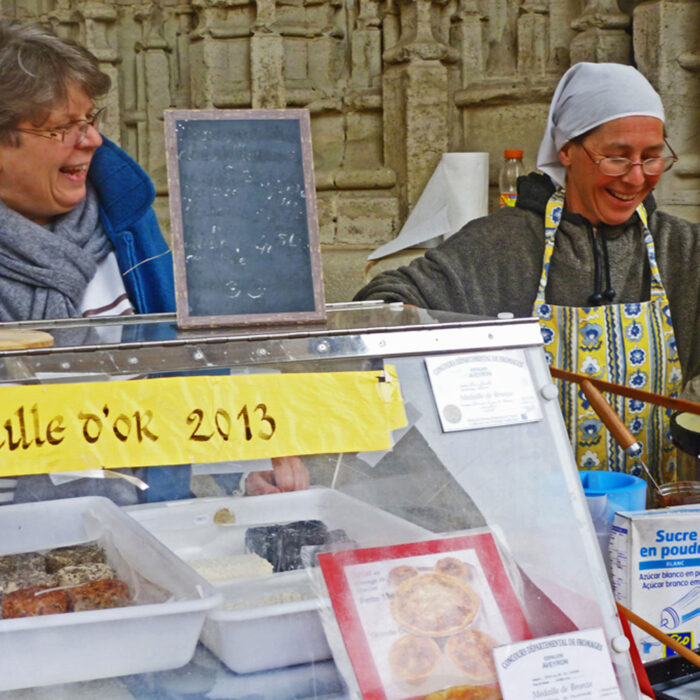You have no items in your cart. Want to get some nice things?
Go shopping
‘Town’ is an apt word. Streetlights blinked red after ten o’clock at night on the empty streets. The shops on the streets just surrounding my apartment shut down on weekends, since there were no state workers to cater to on Saturdays and Sundays. The state capitol grounds were one of my walking paths and a place where I marched to and from several times, whether for demonstrations or because I worked there for a spell. The rain was everything people say it is. The clouds sometimes felt like a death shroud.
Still, there were many saving graces in Olympia for a Los Angeles native like me, like the hiking trails, low cost of living, the marina, the bridge overlooking salmon runs. I’d never lived by a lake before—who cares that it was man-made. I had never lived next door to anarchists before (little did I know I would again, later, in Los Angeles). I was glad for the jar of homemade habañero salsa and the vintage yellow colander I inherited from my first Olympia neighbours, the colander that has made the migration from the Midwest to the Pacific Northwest and now lives on my shelf in the West Adams neighbourhood of Los Angeles. I also liked my anarchist neighbours’ penchant for salon-esque tea parties, parades and costume-making.
Berkeley may have been where I met my first ‘artists’ but I didn’t live there, so their impact on me was more fleeting. In Berkeley, I dipped my toes into their existence—the parties, spontaneous art and film showings, the conversations on porches and in coffee shops. I stayed peripheral, absorbing bits here and there during my weekend visits. In Olympia, though, I steeped, emboldened and brightened.
Olympia is a place where people make their own parades, after the rains, often without notice to the public or the Oly Po-lee.
(Let nothing keep me from telling you of one parade: one day, the anarchist open-marriage couple who lived next door invited me to a spontaneous parade down the middle of the main street in downtown. On the day of the parade, they skipped, danced, did a mimic of marching under their shared costume, the longish sea monster with numerous heads that snaked its way past the antique stores, past the one where I found the bracelet that had engraved on its interior Ballesteros, the name of my maternal grandmother, since lost.
But the parade: cowbells rang. People struck drums made of the plastic buckets with reinforced garden hose handles we all used on our bikes. There was no Black Bloc at this parade, not even a scrap of black fabric anywhere; instead, a green and orange and red polka-dotted monster jazz funeral march, laughing out death to capitalism, horns trumpeting the message, the call, bringing me out of the pub that changed its name a few times, like almost everyone I knew had, would do, if they stuck around Olympia long enough.)
Many years later, on one of my handful of return visits to Olympia, I walked into the only bar I’ve ever been kicked out of. It was still the long dark hallway I remembered it to be, with a large opening at the end for pool tables. The bar still provided washers and dryers for your convenience. Back when I lived in town, everyone smoked, including me, and most bars were thick fogs you walked through until you found your friends and your glass in hand at a table somewhere in the curtains of reek. Smoking has since been banned in all indoor establishments, and the walls and ceilings looked like they got a cursory wipe-down, much less than a scrub, but I still couldn’t imagine bringing my laundry into this cave. Air-conditioning was another relatively recent addition to the place, and on the hot day my companion and I entered, the cool air and dark walls were a welcome respite. Our original intention was to go look at the broken glass windows of the place, which my companion had read about in that morning’s paper. Yep, they were indeed broken, and wood and cardboard made for a new barrier. The place had always seemed like the type where you’d find broken glass, possibly some theatrical droplets of dried blood around the sidewalk. There was no blood, and the person who’d had the freak-out had been caught and charged. We figured we’d missed the action the night before by about fifteen minutes, when we were at the bar two doors down leaving just before last call.

It was Sunday, a day we wouldn’t be able to buy hard alcohol in any store. The only other store within walking distance that offered beer was being boycotted for not stocking emergency contraceptives for women. We didn’t want hard alcohol anyway; we’d had plenty over the last few nights of our bar-hopping, mostly sticking to Greyhounds (me) and scotch (my companion). Beer sounded just fine, a pitcher of it, and the hard benches and tables were our chosen fate for the afternoon turning to evening.
In the bar, I learned that they now sold a dozen eggs over the counter. Organic. The bar was still part Laundromat and now boasted an internet jukebox. You could play ping-pong, air hockey, pool, or watch the silent televisions while listening to any song that struck your fancy. And now, you could purchase eggs.
The bartender gave someone the remote to one of the television screens, and I watched as the patron flipped idly through, stopping on everything I never would have stopped at even as I myself am an incessant channel surfer when I have a remote in hand. A sign advertising a carton of eggs wavered softly behind the bar, the air conditioning providing it swish.
This is one of the beauties of the place that I call home sometimes in my mind: that you can buy a dozen organic eggs at the long polished wood counter of a dark bar. You can set that carton of eggs atop your laundry and be on your way and know you will have a dinner of quiche or a breakfast of poached, scrambled, or fried.
It all reminded me of the father and his two young sons who used to sell my bar companion, known as my former boyfriend in a previous life, a dozen eggs and mushrooms on the street outside the building where my ex-boyfriend’s office was housed. He would be entering or exiting the large old building with banks and banks of windows, and there would be the little family: all brown-haired, all looking so much alike it was a little off-putting. The boys had a wagon with the goods, fresh from their small farm on the outskirts of town. My companion, a picky eater, loved eggs on occasion and dug the taste of fresh mushrooms. He had to have been one of their best customers on the street.
When these groceries came home to me, I thought of the little boys and their father at demonstrations we’d all taken part in, and how the father sometimes handed the little boys a book of matches. In their small hands they held tiny paper American flags. The father encouraged them to burn the little flags. I’d also seen the father cheer on the boys as they rattled and clanged locked newspaper boxes on the street like they were plastic piggy banks full of coins. All of it seemed amusing; sometimes odd. But this was the town I’d adopted, and its people were part of that. I was transient, they were not. I was to observe their way of life and make some of it, possibly, my own.
It’s been years since I returned. I have no doubt that when I go back I will enter a freshened place, my memory will need to be wiped clean, the smoke gone again, and different storefronts will compound the memories I have of that town.
One day I’ll return to that bar. I don’t need to buy the eggs. Olympia was an eight year gestation for me. The membrane between me and the town was thin, once, until I gathered the energy to burst out, cracking the shell, back down Interstate 5, reborn to the desert by the ocean nest I started from.

About Wendy C. Ortiz
Wendy C. Ortiz is the author of Excavation: A Memoir (Future Tense Books, 2014) and Hollywood Notebook (Writ Large Press, 2014). Her work has appeared in The New York Times, The Nervous Breakdown, The Rumpus, and other literary journals both online and print. Wendy is a writer, parent, and marriage and family therapist intern in Los Angeles, California.




